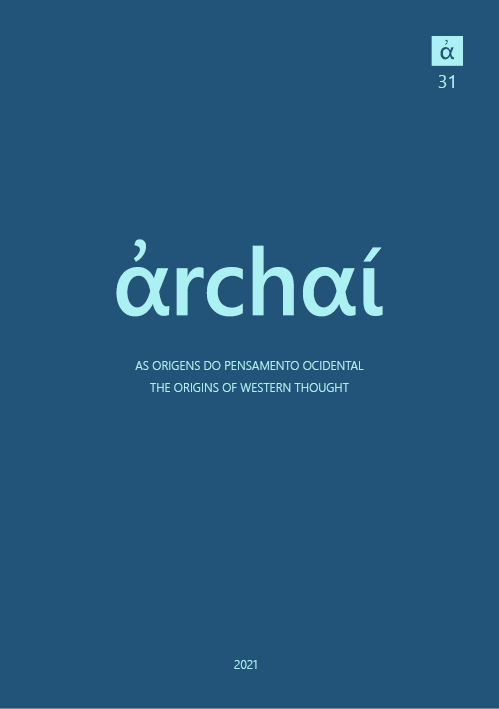'Many Cyruses': Xenophon's "Cyropaedia" and English Renaissance Humanism Reconsidered
DOI:
https://doi.org/10.14195/1984-249X_31_12Keywords:
Cyropaedia, Xenophon, Humanism, English Renaissance, mirror for princesAbstract
The reception history of a text is frequently at odds with its origins. Colin Burrow notes the irony that despite its loud support of those in power, Virgil’s Aeneid is taken up and translated by the disempowered during the Renaissance. The same is partly true of Xenophon’s Cyropaedia. This paper examines the place of the Cyropaedia within the English humanist tradition, focussing on English translations of the text, and its interpretation within the speculum principis (mirror-for-princes) tradition. This culminates in the moment when the reigning monarch, King James I of England, finds mirrored in the Cyropaedia an irresistible model of imperial kingship.
Downloads
References
BARKER, W. (trad.) (1552). The bookes of Xenophon contayning the discipline, schole, and education of Cyrus the noble kyng of Persie. Londres, Reynolde Wolfe.
BARKER, W. (trad.) (1567). The VIII. bookes ofXenophon, containinge the institutio[n], schole, and edwation of Cyrus, the noble Kynge of Persye. Londres, Reynolde Wolfe.
BURROW, C. (2000). “Virgil in English Translation” en MARTINDALE, C. (ed.) The Cambridge Companion to Virgil. Cambridge, Cambridge University Press.
CLELAND, J (1607). Heropaideia. Londres, Joseph Barnes.
DIGBY, F. ; NORRIS, J. (trads.) (1685). Kyrou Paideia: Or, the Institution and Life of Cyrus the Great. Written by That Famous Philosopher and General, Xenophon of Athens. Londres, para Matthew Gilliflower y James Norris.
GOLDING, A. (trad.) (1564). Thabridgment of the histories of Trogus Pompeius,collected and wrytten in the Laten tonge, by the famous historiographer Iustine. Londres, Thomas Marshe.
HAMILTON, A.C. (ed.) (1995). The Faerie Queene. Londres y Nueva York, Longman.
HOLLAND, P. (trad.) (1632). Cyrupaedia. Londres, J[ohn] L[egat].
HOULBROOKE, R. (ed.) (2006). 'The Philosophy of Imperial Kingship and the Interpretation of James VI and I' en James VI and I: Ideas, Authority, and Government. Aldershot, Ashgate.
JARDINE, L. (ed.) (1997). Erasmus: The Education of a Christian Prince. Cambridge, Cambridge University Press.
MACHIAVELLI, N. (1995). The Prince. Harmondsworth, Penguin.
RICH, B. (trad.) (1584). The Famous Hystory of Herodotus. Londres, Thomas Marshe.
SHEPHERD, G. (ed) (1989). An Apology for Poetry. Manchester, Manchester University Press.
TATUM, J (1989). Xenophon's Imperial Fiction: On 'The Education of Cyrus'. Princeton, Princeton University Press.
Downloads
Published
How to Cite
Issue
Section
License
Copyright (c) 2021 Jane Grogan

This work is licensed under a Creative Commons Attribution 4.0 International License.
Given the public access policy of the journal, the use of the published texts is free, with the obligation of recognizing the original authorship and the first publication in this journal. The authors of the published contributions are entirely and exclusively responsible for their contents.
1. The authors authorize the publication of the article in this journal.
2. The authors guarantee that the contribution is original, and take full responsibility for its content in case of impugnation by third parties.
3. The authors guarantee that the contribution is not under evaluation in another journal.
4. The authors keep the copyright and convey to the journal the right of first publication, the work being licensed under a Creative Commons Attribution License-BY.
5. The authors are allowed and stimulated to publicize and distribute their work on-line after the publication in the journal.
6. The authors of the approved works authorize the journal to distribute their content, after publication, for reproduction in content indexes, virtual libraries and similars.
7. The editors reserve the right to make adjustments to the text and to adequate the article to the editorial rules of the journal.



